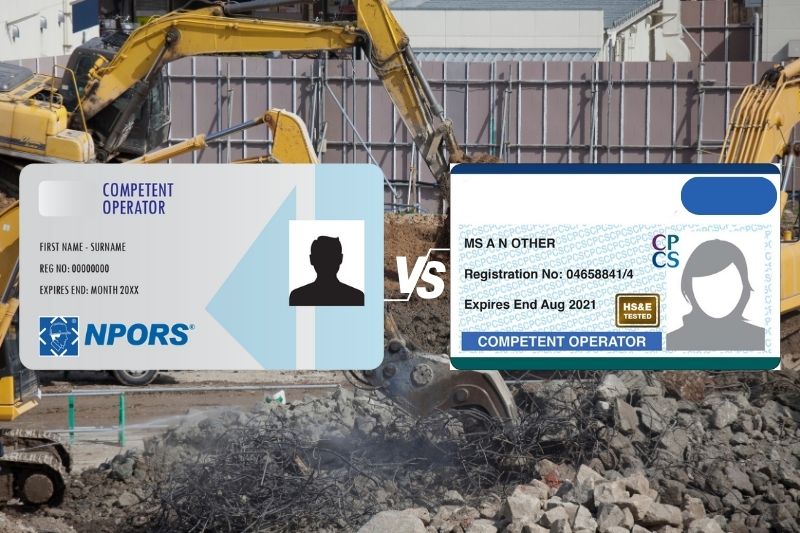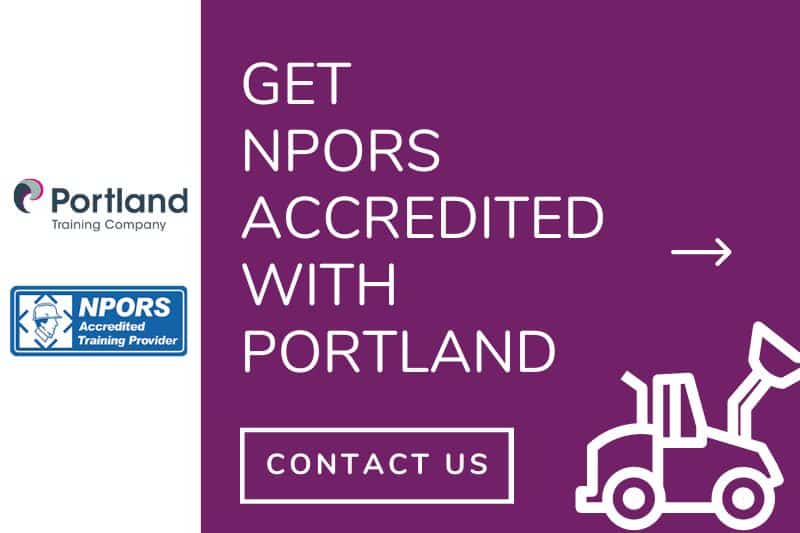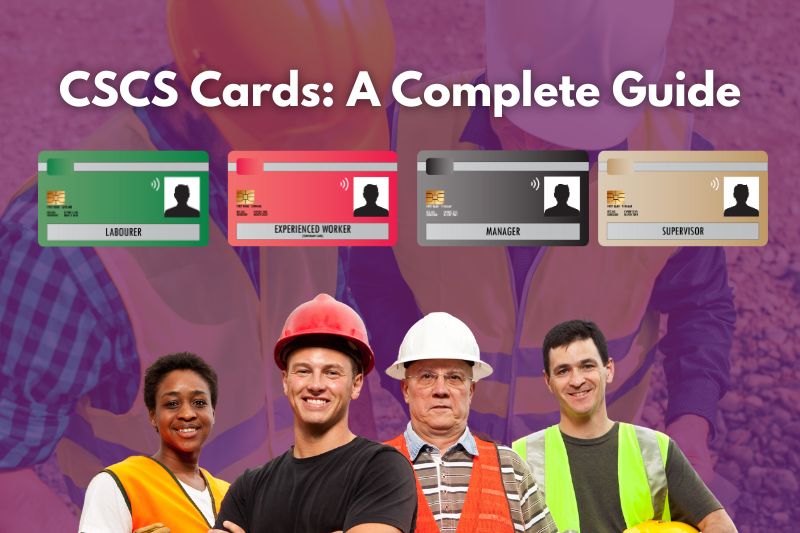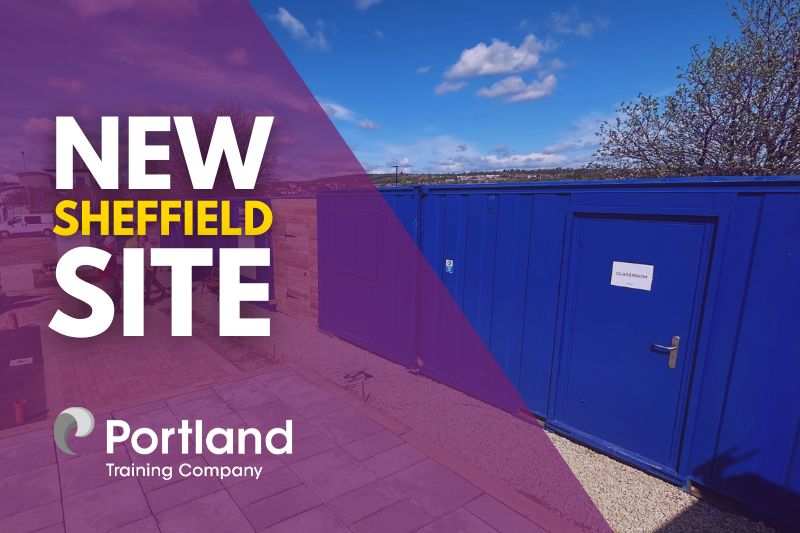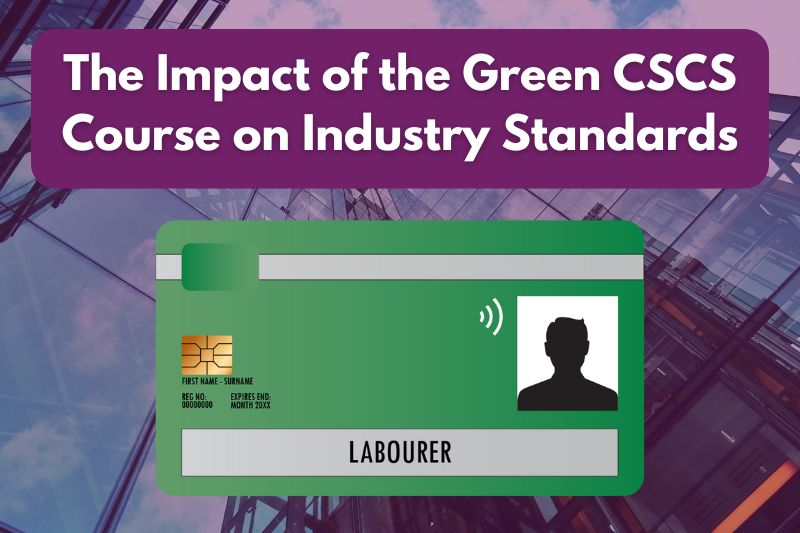When you’re looking for a training program, accreditation can be something you factor into your decision. If you’re looking to gain qualifications and accreditation for the construction industry, you may be finding it difficult to make a decision to go down the NPORS or CPCS route.
In this article, we look to explain the difference between NPORS and CPCS, and help you decide which one will be best for you. Before we look at which is the best option for you, let’s briefly look at what each card is.
What is an NPORS card?
An NPORS card is a construction industry qualification that allows the holder to operate plant machinery. The card is valid for five years and can be renewed. There are different levels of NPORS cards, each one allowing the holder to operate different types of machinery. The most common type of NPORS card is the red card, which allows the holder to operate excavators, dumpers and Forklift trucks.
What is a CPCS card?
CPCS cards are also identification cards that prove an individual has the necessary skills and training to operate specific construction equipment. Similar to NPORS, they are valid for five years and can be renewed after. The card is obtained by successfully completing an accredited training course and passing a test administered by the Construction Plant Certification Scheme (CPCS). There are different types of CPCS cards, each of which corresponds to a different type of construction equipment. For example, there is a CPCS card for operating a forklift, a CPCS card for operating a crane, and so on.
What’s the difference between NPORS and CPCS?
If you’re looking to get certified to operate plant machinery in the UK, you may be wondering what the difference is between NPORS and CPCS cards. Both are nationally recognised certification schemes, but which one is right for you? Although the 2 card systems are similar in terms of their outcomes, there are distinct differences in how the cards are obtained and also their cost.
Here’s a quick overview of the key differences between NPORS and CPCS:
Cost
NPORS is typically cheaper and easier to obtain than CPCS. In some cases, this can be quite a lot cheaper. One of the main reasons for this is due to NPORS being delivered on-site, whereas CPCS testing has to be done at an accredited CPCS testing centre.
If you are a medium to large company, which requires multiple personnel to be accredited, you may find NPORS works out significantly more cost-effective when compared to CPCS.
Testing
The main difference between NPORS and CPCS testing is that the CPCS test can only take place at an accredited CPCS test centre. Whereas, NPORS testing can take place on-site, using the plant machinery that is already there. This means there may be limitations when looking at CPCS, especially regarding your location as some areas in the UK have limited access to CPCS testing centres.
Furthermore, a distinct benefit to the NPORS approach means you could put multiple people through the testing at the same time with little disruption to the overall project.
Recognition
It may have been the case that in previous years, CPCS was seen as the only choice when it came down to plant certification. However, in more recent times, NPORS has made significant inroads into the construction industry. You would now be hard pushed to find anywhere that doesn’t accept NPORS. In addition, because of the above reasons of cost and the flexibility of testing, NPORS has become extremely popular.
NPORS has also been recognised by the Construction Site Certification Scheme (CSCS), Construction Industry Training Board (CITB), Build UK (an association of major UK construction contractors) and Civil Engineers Contractors Association (CECA) to name a few.
How long it takes to get your card?
It’s been well documented amongst those working in the construction industry for some years that CPCS cards can take several weeks for them to arrive. As most people appreciate, can be frustrating, especially when they need the card quickly to be onsite.
In contrast, NPORS has got a great reputation for quick turnarounds when it comes to quick turnarounds. With most cards being dispatched within a matter of days – with some people receiving theirs in as little as 1-2 days from completion of the test.
So when it comes to service, NPORS has clear advantages over CPCS. Especially if receiving your cards quickly is important to you (or your employees).
Conclusion
There are some similarities with NPORS and CPCS but there are also some clear differences. It may be no surprise that for the above reasons, here at Portland Training we NPORS as our main plant card scheme. Due to NPORS being more cost-effective and more flexible in terms of training/testing, we believe NPORS has the edge.
However, what’s right for you may be different. By weighing up the above information, you may find you prefer one card over the other. But if you’re having difficulty deciding whether NPORS or CPCS is best for you, why not get in touch with us for a more detailed discussion on your training needs.

